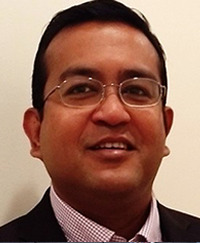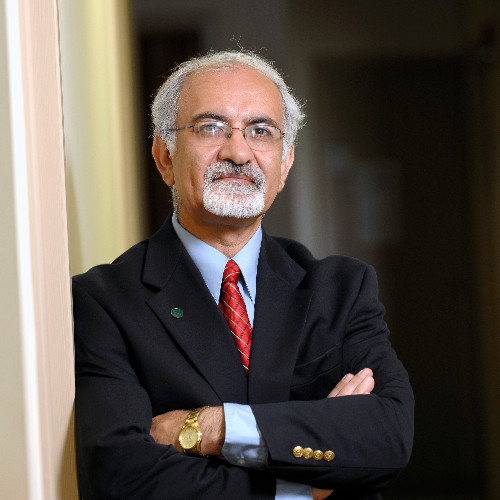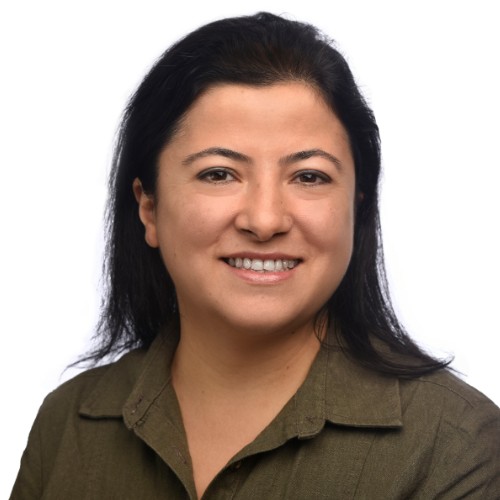
Master of ScienceInformation Systems Engineering and Management
Information Systems Engineering and Management (ISEM) serves as a bridge between current and emerging technologies, emphasizing technical system development and management considerations. This program educates graduates to become leaders in addressing business problems and managing smart digital enterprises.
The Information Systems Engineering and Management program at Harrisburg University is a 12 course, 36 credit hour flexible and interdisciplinary comprehensive program that emphasizes the technical, engineering and management business aspects of creating and deploying smart digital enterprises. ISEM is SEVP compliant for International students.
Our graduate program aims to educate qualified leaders capable of working with stakeholders, addressing business problems, and managing the next generation of smart digital enterprises through strategic planning, architecture, design, integration, testing, deployment, and ongoing management. Explore how ISEM supports enterprise digital transformation and cultivates future industry leaders.
Harrisburg University ISEM graduate studies are built on the following three (3) pillars, which are inter-related perspectives of successful system design and deployment:
- Information Systems Technologies: development of skills and competencies in new and emerging technologies and their applications, including predictive and generative Artificial intelligence (AI), Machine Learning (ML), Deep Learning, Big Data, on-premise and Cloud Computing, Blockchains, Business Intelligence, Internet of Things (IoT) and Industry 4.0.
- Systems Design: development of the ability to think broadly and holistically and gain a range of perspectives and skills, focusing on systems thinking and emphasis on development of integrated systems rather than individual components. This includes development of enterprise architectures that optimize the use of people, processes and technologies.
- Management and Management Science: development of the aptitude to focus on business strategies, entrepreneurship, planning, security and governance for global and agile enterprises.
The Information Systems Engineering and Management course structure is comprised of 12 courses in total, with five (5) “Core” Courses, five (5) “Elective” Courses and two (2) Capstone courses. All “Core” courses must be taken in the first year of study before Elective courses are available in the second year of study.
Review ISEM Elective courses.
Program Concentrations
Upon entry to the ISEM program, each student picks one of five (5) available “Concentrations”. A student will remain in that chosen Concentration unless they switch to a different Concentration before 24 credit hours have been accomplished.
The ISEM Concentrations are:
- ARTIFICIAL INTELLIGENCE FOR BUSINESS
5 courses (3 required + 2 electives) | 15 semester hours
This concentration educates a student on AI Principles and Applications and relationship of AI to Machine Learning, Big Data and their role in Business Intelligence and Decision Support Systems. - CLOUD COMPUTING FOR BUSINESS
5 courses (3 required + 2 electives) | 15 semester hours
This concentration focuses on the application of Cloud Computing to modern Enterprises. This Concentration ties together emerging Cloud Computing applications, Security and the role of AI and Machine Learning in the implementation of Cloud Computing in modern enterprises. - BLOCKCHAIN AND CRYPTOCURRENCY
5 courses (3 required + 2 electives) | 15 semester hours
This concentration immerses the student into the emergent Blockchain technologies and tools as well as exposure to cryptocurrency applications that include Bitcoin and Ethereum. - INDIVIDUALIZED
15 semester hours
This Concentration is available to students who wish to select their own customized set of 5 Electives upon completion of their Core courses. The “Individualized” Concentration makes it possible for a student to select available Graduate level courses from across the University.
For more details on each Concentration, please see the ISEM Program Overview.
What separates the ISEM MS program from its peers?
The ISEM Program recognizes that continuous “Digital Transformation” is occurring around the globe. This makes it important for students to understand how current and future generations of digital enterprises will be successfully conceived, planned, designed, deployed and managed.
To support this:
- ISEM is focused on the “big-picture” view of system development and addresses the entire system development life cycle from concept to deployment, maintenance and support and ultimately system retirement. Both technical and management aspects of this process are addressed.
- ISEM embraces current and emerging technologies. This list is dynamic, but currently ISEM addresses the increased impact of software and data on systems. Current technology focus is on Artificial Intelligence (AI), including both predictive and generative AI, in-premise and Cloud Computing, Analytics, Blockchain, Semantic Web, IoT, Cybersecurity, DevOps and Enterprise Resource Planning. This list evolves as technology evolves.
- ISEM recognizes that virtually all variations of digital enterprises in the public and private sectors are being transformed. This includes, but is not limited to, commercial business, manufacturing and Industry 4.0, cognitive cities and Communities, digital health, energy and eAgriculture. This list is dynamic and ever-evolving.
Why Choose ISEM?
- ISEM graduates acquire the ability to:
- Understand stakeholders and their business problems.
- Define requirements and the solutions that must be developed to address stakeholder problems.
- Plan, design, develop, integrate, test, deploy and manage systems and resources that lead to stakeholders satisfaction.
- The ISEM curriculum educates students on how to bridge current and emerging technologies in the development of smart solutions in support of manufacturing, services and supply chains operations.
Program Lead

Robert Pittman, Ph.D. Assistant Professor and Program Lead of Systems Engineering
Full Time Faculty
Instructor of Information Systems Engineering & Management
Assistant Professor and Program Lead of Systems Engineering
Associate Vice Chancellor of International Programs and Professor of Information Systems Engineering and Management
Assistant Professor of Information Sciences and Program Lead of Human-Centered Interaction Design
Corporate Faculty
Corporate Faculty (ISDR)
Program Core Courses
This program requires a total of 36 semester hours: 15 semester hours from the “Core” courses, 6 semester hours of experiential (Capstone) courses, and 15 Elective semester hours of either Concentration (Elective) courses. Note that all courses are 3 semester hours.
Mandatory CORE courses (all students) (12 credit hours)
Core courses (All students) – “Pick 1” from list OF 5 COURSES (3 credit hours)

Information for Students who want to come to the U.S.
Program News
HU Professor Amar Ramudhin, PhD, Published in Journal of the American Pharmacists Association (JAPhA)
Harrisburg, PA – Professor Amar Ramudhin, PhD, Program Lead of Information Systems Engineering and Management at Harrisburg University of Science and Technology…
HU Doctoral Candidate Publishes Research on Artificially Intelligent Pathfinding and Routing Systems
As part of phase 3 of his dissertation thesis, doctoral candidate Jai Keerthy Chowlur Revanna, of Harrisburg University of Science…
Harrisburg University’s PhD student and Thesis Supervisor published Conference Paper in esteemed Springer Journal
Jai Keerthy Chowlur Revanna and his Thesis Supervisor Professor Nushwan Yousuf B. Al-Nakash are excited to share that their Conference…
Groundbreaking Vehicle Route Optimization Research by Harrisburg University Ph.D. Student Published
A research paper by a Harrisburg University of Science and Technology ISEM Ph.D. student has been published. The conference paper,…
HU Class of 2023: Celebrating Achievements, Experiential Education, and Career Success
Harrisburg University (HU) is proud to celebrate the achievements of its Class of 2023 graduates, who have excelled in their…
HU Students Present Innovative Research on Route Optimization at International Conference
A team of Ph.D. students from the Information System Engineering and Management program and Dr. Nushwan Yousif B. Al-Nakash, a…
Take the Next Step
Get More Information
Questions about our programs? Reach out to a member of our team and get personalized answers.
Apply Now
Create an account and start your free online application to Harrisburg University today.

 Jason Hebbe was named the Chief Technology Officer for the Commonwealth of Pennsylvania in June 2021.
Jason Hebbe was named the Chief Technology Officer for the Commonwealth of Pennsylvania in June 2021. As VP of Integrated Experience Platform and Delivery at enGen, a wholly owned healthtech subsidiary of Highmark Health, Jennifer Magaro facilitates an integrated experience platform layer that supports and simplifies the health care experience for all.
As VP of Integrated Experience Platform and Delivery at enGen, a wholly owned healthtech subsidiary of Highmark Health, Jennifer Magaro facilitates an integrated experience platform layer that supports and simplifies the health care experience for all. Patty has been with Phoenix Contact for 17 years. During that time she has been worked closely with the business to establish apprenticeship programs geared to developing skill sets that are greatly needed in the manufacturing industry. Several of those programs have a focus on IT. She also co-chairs the NextGen Advanced Manufacturing Partnership in Southcentral PA. The employer group works to address the issues that restrain the growth of manufacturing in the region. Patty also sits on the Board of Directors for the South Central PA Manufacturing Association.
Patty has been with Phoenix Contact for 17 years. During that time she has been worked closely with the business to establish apprenticeship programs geared to developing skill sets that are greatly needed in the manufacturing industry. Several of those programs have a focus on IT. She also co-chairs the NextGen Advanced Manufacturing Partnership in Southcentral PA. The employer group works to address the issues that restrain the growth of manufacturing in the region. Patty also sits on the Board of Directors for the South Central PA Manufacturing Association. Patrick McDonald is an IT Consultant with over 15 years’ experience delivering technology solutions for Federal, state and local government agencies. He specializes in IT delivery modernization through cloud and automation, helping organizations implement strategies aimed at accelerating the speed of IT service delivery that align to industry frameworks such as CMMI, ITIL, SAFe and Agile methodologies. In his current role he manages IT operations for local government agencies as part of Deloitte’s Government and Public Services Practice. He holds a M.S. in Information Science and Technology from Temple University.
Patrick McDonald is an IT Consultant with over 15 years’ experience delivering technology solutions for Federal, state and local government agencies. He specializes in IT delivery modernization through cloud and automation, helping organizations implement strategies aimed at accelerating the speed of IT service delivery that align to industry frameworks such as CMMI, ITIL, SAFe and Agile methodologies. In his current role he manages IT operations for local government agencies as part of Deloitte’s Government and Public Services Practice. He holds a M.S. in Information Science and Technology from Temple University. Brad Milbrand serves as the Transition and Optimization manager for CAI’s Application Managed Services (AMS) account with the Commonwealth of Pennsylvania. He is responsible for setting up and transitioning new projects to the AMS account and works across all AMS teams to identify process and procedure improvements to provide better client solutions.
Brad Milbrand serves as the Transition and Optimization manager for CAI’s Application Managed Services (AMS) account with the Commonwealth of Pennsylvania. He is responsible for setting up and transitioning new projects to the AMS account and works across all AMS teams to identify process and procedure improvements to provide better client solutions. I am a firm believer in the quote “Staying focused on human beings is one of the most important tenets of building a successful business”. I am a curious technologist, passionate about innovative products, service design and delivery. In my 20+ years consulting with various clients I have interacted with and learned from C-level execs, business line managers, and peers to have a keen focus on customer needs while empowering implementation teams to deliver business value.
I am a firm believer in the quote “Staying focused on human beings is one of the most important tenets of building a successful business”. I am a curious technologist, passionate about innovative products, service design and delivery. In my 20+ years consulting with various clients I have interacted with and learned from C-level execs, business line managers, and peers to have a keen focus on customer needs while empowering implementation teams to deliver business value.














